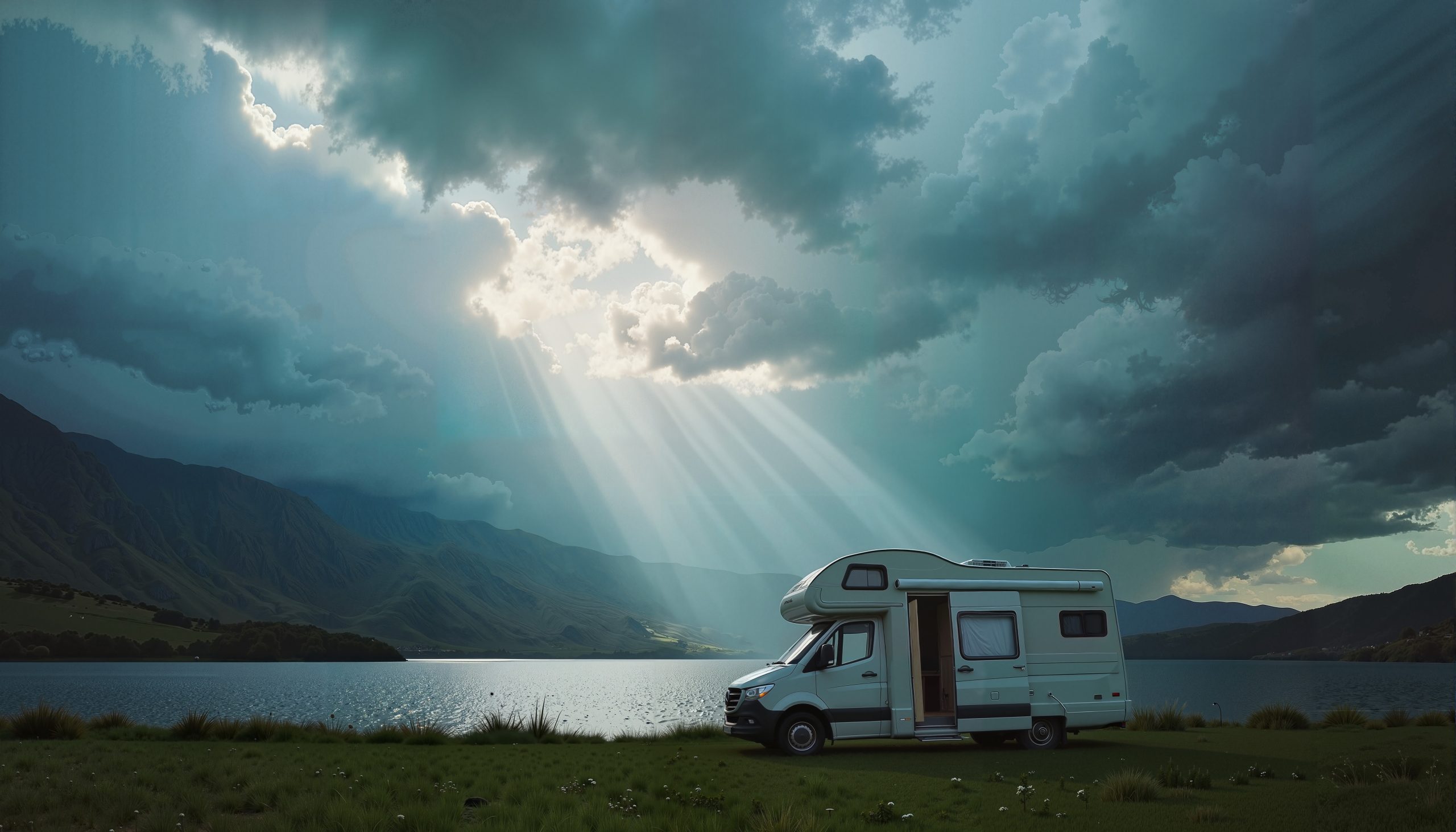Life on the road is all about freedom—but when high winds roll in, that freedom can turn into chaos fast. Whether you’re chasing sunshine along the coast or exploring the open plains, having the best camper insurance is your first line of defense when severe weather threatens your rig, your plans, and your peace of mind.
From hurricane-force winds to sudden Midwest gusts, windstorms are a growing concern for RV travelers. Not only can they cause serious damage to your vehicle, but they can also derail your journey, leave you stranded, and rack up thousands in unexpected expenses. If you think storm protection is only for houses—think again.
Windstorms Are Getting Costlier—Fast
Every year, wind-related events cause an estimated $2.5 billion in property damage across the U.S., and RVs are no exception. Unlike stationary homes, RVs are built to move—but that also means they’re more vulnerable to tipping, roof damage, flying debris, and more.
Even localized windstorms—like derechos or strong thunderstorms—can be enough to damage an awning, break a window, or worse. One strong gust in the wrong place, and you could be looking at major repairs, a canceled trip, or an emergency relocation.
What Counts as a Windstorm Threat?
Not all wind threats are created equal, but even moderate gusts can cause major problems for campers:
- High Threat (40–57 mph gusts): May dislodge slide-outs, topple camp furniture, or tear awnings.
- Extreme Threat (58+ mph gusts): Risk of RV rollover, shattered windows, and damage to adjacent structures or vehicles.
Understanding local wind forecasts—and adjusting your travel plans accordingly—can make all the difference.
Windstorm Hot Zones for RV Travel
If you’re a seasonal traveler, snowbird, or full-timer, it’s worth knowing where the risk is highest:
- Gulf Coast & Southeast: High hurricane activity in summer and fall.
- Midwest & Central Plains: Tornadoes and intense storms are common in spring.
- Western States: Sudden windstorms and dust events can reduce visibility and increase damage risk.
- East Coast & Northeast: Nor’easters and strong coastal winds affect RV parks and campgrounds near the ocean.
Even scenic overlooks and wide-open boondocking spots can turn dangerous during strong wind events—especially if you’re parked under trees or near cliffs.
What Does RV Insurance Cover in a Windstorm?
This is where the best camper insurance really earns its name. Not all RV insurance includes windstorm protection by default, so it’s critical to read the fine print.
Look for:
- Comprehensive Coverage: This typically protects against storm damage, including flying debris, broken windows, and fallen branches.
- Storm Exclusions: Some areas—especially coastal zones—may require separate wind or hurricane coverage.
- Deductibles: Storm-related claims might carry percentage-based deductibles, depending on your insurer and location.
If you’re not sure what’s included in your current policy, talk to an RV-specific insurance provider. You don’t want to find out after the storm hits.
Why Skipping Storm Coverage Isn’t Worth the Risk
Choosing not to carry windstorm protection could leave you facing:
- Thousands in out-of-pocket repairs
- Emergency housing and travel rerouting costs
- A default on your RV loan if your lender requires full coverage
- Delays in getting back on the road—or losing your RV altogether
Even if you’re a fair-weather traveler, the weather doesn’t always cooperate. One unplanned gust or pop-up storm can change everything.
Tips to Stay Safe on the Road During Storm Season
- Watch the forecast before setting up camp or planning routes.
- Avoid parking near trees or unsecured structures.
- Retract your awnings and secure anything loose outdoors.
- Keep gas tanks full in case you need to relocate quickly.
- Have your policy and roadside assistance info handy at all times.
Filing a Windstorm Claim for Your RV
If you experience damage after a storm, follow these steps:
- Get to safety before assessing any damage.
- Take photos/videos of everything before cleaning up.
- Contact your insurer as soon as possible.
- Meet with an adjuster if needed and keep records of all communication.
- Save receipts for temporary lodging or towing if applicable.
Protect Your Adventure with the Best Camper Insurance
When you’re out chasing horizons, peace of mind is everything. The best camper insurance doesn’t just protect your vehicle—it protects your lifestyle. At Happy Camper Insurance, we help RV owners stay ready for anything, from a breezy beach day to an unexpected windstorm.
Don’t let weather derail your journey.Connect with Happy Camper Insurance today and make sure you have the storm-ready coverage you need to keep the good times rolling—no matter where the wind takes you.


